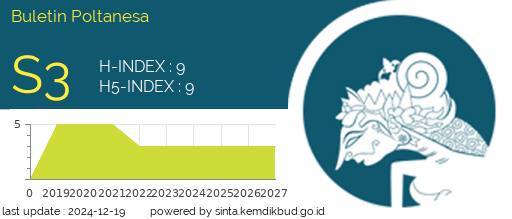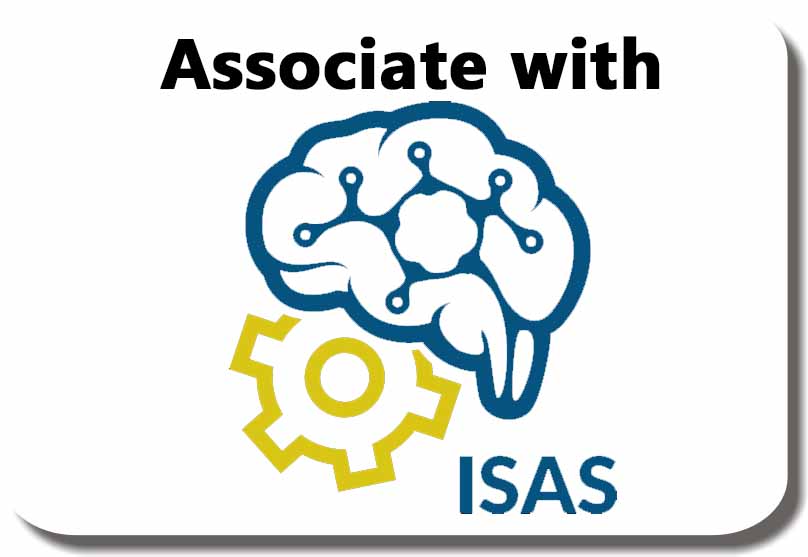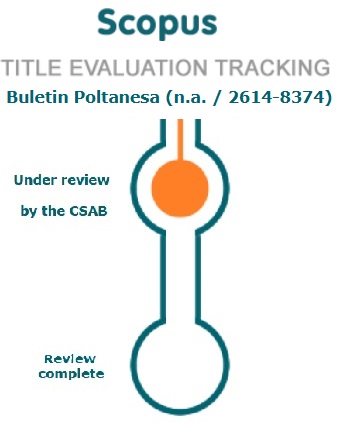Profil Kesejahteraan Subjektif Ibu Bekerja di Masa Pandemi Covid-19
DOI:
https://doi.org/10.51967/tanesa.v23i1.1246Keywords:
Ibu, Bekerja, Kesejahteraan Subjektif, Pandemi Covid-19Abstract
Pandemi COVID-19 membawa dampak pada masyarakat global. Ibu bekerja, merupakan salah satu kelompok yang mengalami penyesuaian peran di masa Pandemi. Kondisi ini dapat berdampak pada kesejahteraan subjektif Ibu. Penelitian ini bertujuan untuk mengamati dinamika kesejahteraan subjektif pada Ibu bekerja di Masa Pandemi COVID-19. Penelitian ini dilakukan dengan menggunakan metode survei. Partisipan penelitian ini adalah 201 orang Ibu bekerja berusia diatas 18 tahun yang berdomisili atau bekerja di Tangerang Selatan, Banten. Pengumpulan data dilakukan secara online dengan menggunakan metode convenience sampling. Instrumen penelitian menggunakan Skala Kesejahteraan Ibu yang diadaptasi dari Scale of Subjective Well-Being for Mother (SSWB-M) serta kuesioner yang mencakup informasi demografis yang disusun oleh peneliti. Analisis hasil penelitian melalui analisis deskriptif dengan menggunakan software JASP versi 0.16.0. Hasil analisis deskriptif menunjukkan bahwa kesejahteraan subjektif pada Ibu bekerja terkait dengan faktor seperti usia, status pernikahan, durasi / Lama bekerja, usia pernikahan, dan jumlah anak. Hasil penelitian ini memberikan informasi penting bagi peneliti mengenai faktor-faktor yang terkait kesejahteraan subjektif pada Ibu bekerja di masa Pandemi COVID-19. Hasil penelitian ini akan menjadi landasan bagi penelitian atau program intervensi pada ibu bekerja. Hasil penelitian ini diharapkan dapat menjadi rujukan informasi bagi segenap pihak, seperti pemangku kebijakan, perusahaan, Lembaga dan organisasi lainnya yang memiliki kepedulian terhadap kesejahteraan ibu bekerja pasca Pandemi COVID-19.
References
Badan Pusat Statistik. (2020). Booklet Survei Angkatan Kerja Nasional. https://www.bps.go.id/publication/2020/12/23/d8b9a75ce826ddafbddb9657/booklet-survei-angkatan-kerja-nasional-agustus-2020.html
Badan Pusat Statistik. (2021). Statistik Indonesia 2021 (03200.2103). Badan Pusat Statistik. https://www.bps.go.id/publication/download.html?nrbvfeve=OTM4MzE2NTc0Yzc4NzcyZjI3ZTliNDc3&xzmn=aHR0cHM6Ly93d3cuYnBzLmdvLmlkL3B1YmxpY2F0aW9uLzIwMjEvMDIvMjYvOTM4MzE2NTc0Yzc4NzcyZjI3ZTliNDc3L3N0YXRpc3Rpay1pbmRvbmVzaWEtMjAyMS5odG1s&twoadfnoarfeauf=MjAyMi0wNi0xMSAxOToxNDowOQ%3D%3D
Becchetti, L., & Bellucci, D. (2021). Generativity, aging and subjective well-being. International Review of Economics, 68(2), 141–184. https://doi.org/10.1007/s12232-020-00358-6
Becker, C., Kirchmaier, I., & Trautmann, S. T. (2019). Marriage, parenthood and social network: Subjective well-being and mental health in old age. PLOS ONE, 14(7), e0218704. https://doi.org/10.1371/journal.pone.0218704
Cao, Y., Krause, J. S., Saunders, L. L., & Clark, J. M. R. (2015). Impact of Marital Status on 20-Year Subjective Well-being Trajectories. Topics in Spinal Cord Injury Rehabilitation, 21(3), 208–217. https://doi.org/10.1310/sci2103-208
CNN Indonesia. (2020). Survei Jobstreet: 35 Persen Kena PHK, 19 Persen Dirumahkan. https://www.cnnindonesia.com/ekonomi/20201008101052-92-555827/survei-jobstreet-35-persen-kena-phk-19-persen-dirumahkan.
DeMaris, A., & Oates, G. (2022). The Trajectory of Subjective Well-Being: A Partial Explanation of the Marriage Advantage. Journal of Family Issues, 43(6), 1650–1668. https://doi.org/10.1177/0192513X211030033
Diener, E., Lucas, R. E., & Oishi, S. (2018). Advances and Open Questions in the Science of Subjective Well-Being. Collabra: Psychology, 4(1), 15. https://doi.org/10.1525/collabra.115
Karunia, A. M. (2020). Survei PPM Manajemen: 80 Persen Pekerja Mengalami gejala Stres Karena Khawatir Kesehatan. https://money.kompas.com/read/2020/06/05/133207026/survei-ppm-manajemen-80-persen-pekerja-mengalami-gejala-stres-karena-khawatir.
Knöpfli, B., Morselli, D., & Perrig-Chiello, P. (2016). Trajectories of Psychological Adaptation to Marital Breakup after a Long-Term Marriage. Gerontology, 62(5), 541–552. https://doi.org/10.1159/000445056
Lenzi, C., & Perucca, G. (2021). Not too close, not too far: Urbanisation and life satisfaction along the urban hierarchy. Urban Studies, 58(13), 2742–2757. https://doi.org/10.1177/0042098020962397
Luthar, S. S., & Ciciolla, L. (2015). Who mothers mommy? Factors that contribute to mothers’ well-being. Developmental Psychology, 51(12), 1812–1823. https://doi.org/10.1037/dev0000051
Martiny, S. E., Thorsteinsen, K., Parks-Stamm, E. J., Olsen, M., & Kvalø, M. (2021). Children’s Well-being during the COVID-19 pandemic: Relationships with attitudes, family structure, and mothers’ Well-being. European Journal of Developmental Psychology, 1–21. https://doi.org/10.1080/17405629.2021.1948398
Matysiak, A., Mencarini, L., & Vignoli, D. (2016). Work–Family Conflict Moderates the Relationship Between Childbearing and Subjective Well-Being. European Journal of Population, 32(3), 355–379. https://doi.org/10.1007/s10680-016-9390-4
Prastuti, E., Prastuti, E., Tairas, M. M. W., & Hartini, N. (2018). The Development and Validation: The Scale of Subjective Well-Being for Mother (SSWB-M). Journal of Educational, Health and Community Psychology, 7(2), 118. https://doi.org/10.12928/jehcp.v7i2.10322
Proctor, C., & Tweed, R. (2016). Measuring Eudaimonic Well-Being. In J. Vittersø (Ed.), Handbook of Eudaimonic Well-Being (pp. 277–294). Springer International Publishing. https://doi.org/10.1007/978-3-319-42445-3_18
Shaughnessy, J. J., Zechmeister, E. B., & Zechmeister, J. S. (2012). Research methods in psychology (9th ed). McGraw-Hill.
Song, Y.-J., & Lee, Y.-S. (2021). Work hours, work schedules, and subjective well-being in Korea. International Sociology, 36(1), 25–48. https://doi.org/10.1177/0268580920949724
Sunarti, E., Kamilah, D., Almas, H., & Pitriani, S. (2021). Family Subjective Well-Being of Health Workers Women During The Covid-19 Pandemic: Family Subjective Well-Being of Health Workers Women During The Covid-19 Pandemic. Journal of Family Sciences, 5(2), 103–120. https://doi.org/10.29244/jfs.v5i2.33152
Downloads
Published
How to Cite
Issue
Section
License
The copyright of this article is transferred to Buletin Poltanesa and Politeknik Pertanian Negeri Samarinda, when the article is accepted for publication. the authors transfer all and all rights into and to paper including but not limited to all copyrights in the Buletin Poltanesa. The author represents and warrants that the original is the original and that he/she is the author of this paper unless the material is clearly identified as the original source, with notification of the permission of the copyright owner if necessary.
A Copyright permission is obtained for material published elsewhere and who require permission for this reproduction. Furthermore, I / We hereby transfer the unlimited publication rights of the above paper to Poltanesa. Copyright transfer includes exclusive rights to reproduce and distribute articles, including reprints, translations, photographic reproductions, microforms, electronic forms (offline, online), or other similar reproductions.
The author's mark is appropriate for and accepts responsibility for releasing this material on behalf of any and all coauthor. This Agreement shall be signed by at least one author who has obtained the consent of the co-author (s) if applicable. After the submission of this agreement is signed by the author concerned, the amendment of the author or in the order of the author listed shall not be accepted.









